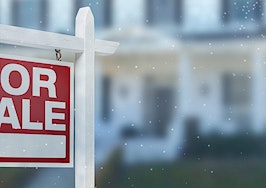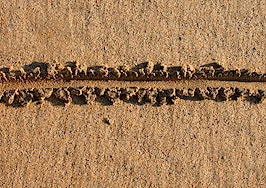Nicole Solari is a top-producing broker-owner in Northern California whose regular bimonthly column, which covers real estate marketing, selling strategies and working with clients, publishes on Tuesdays.
Every property deserves its own marketing plan, one designed specifically to reach the prospects who are most likely to purchase the property you’re listing. That said, there are fundamental tasks that all real estate agents should perform on every single listing — including hosting at least one open house.
Open houses have long been known among agents as events that sellers fervently believe are crucial to selling their home. Agents believe just as fervently that they’re principally tools for developing buyer leads. If you do them right, open houses can perform both functions equally well.
But you have to do them at a high level, so here’s what you do:
1. Ensure the property is in ‘showroom’ condition (easy to find and park at)
You’ll, of course, advise clients to clean and declutter their homes and get their landscaping in first rate shape before you put the property on market.
We also strongly advise clients to let us stage their homes, so they show to maximum advantage not only in person but also online, where most of today’s buyers preview homes before buying.
We have a professional photographer shoot photos to accompany all our listings. (And we let the photographer know which special features to focus on in addition to typical home-tour shots.) Cell phone cameras are a wonderful thing, but they’re no substitute for a professional photographer with a full complement of lights, great cameras and a variety of lenses.
At this step in the process, it’s smart to figure out the easiest ways to reach the property. You’ll need to provide routing instructions on the listing as well as map prime spots to set up your open house signs.
In addition, establish where people will park on open house day. If parking is tight near the home, you may have to “reserve” several parking spots the night before your open house.
2. Market the open house to your target buyer
We develop extensive profiles of our target buyer for every property. And we use those profiles to market the property. Does your town rely on the Sunday paper’s open house list, or are your buyers more likely to find listings online?
Instagram and Facebook are good sites to reach entry-level buyers, but don’t forget your own agency’s connections and less commonly used venues like LinkedIn that reach move-up and luxury buyers.
Whatever the best venues, make sure you meet ad deadlines and boost posts related to your open house in multiple places and in a timely manner.
3. Create, and print collateral materials in advance
Most open house visitors want property flyers, even if they’re not actively looking for a home to buy themselves. If you’ve developed a detailed profile of your likely buyers, you’ll make this sheet work not only to relay information that is meaningful to your target buyers but also as a tool to land future listings.
Open house visitors — whether future sellers or friends of current buyers — will take them. And prospective buyers will take flyers even if they’re touring the property with a different agent.
So print enough copies to last awhile, and make sure to stock the flyer bin the day before your open house.
4. Reach out to neighbors
The neighbors deserve special attention in your marketing efforts. Door-knocking prior to a first-time open house is worthwhile, especially if you have access to detailed property information such as that found on property tax records.
We use a feature-rich customer relationship management (CRM) system that pulls up information on individual homes while we’re making our way up the walk to the front door.
And that allows us to tailor our conversation to individual interests, like this: “Hi, Mr. Jones. I see you’ve lived here since (year). We’re going to be putting (the new listing) on the market at (price). You must have a lot of equity built up in your house! We’d love to have you come check our new listing out and, if you’d like, chat with our lender about a refinance or other ways to tap that equity.”
The system we use is Commissions Inc. because it provides data management, lead management and property information along with an open house sign-in tool. But there are other good CRM systems available.
Choose the one that provides the features most useful to you.
5. Reach out to other agents
Realistically, your new listing is going to be sold by another agent, so those agents deserve special attention too.
Holding a broker open is so common most agents don’t even think about them anymore. But it’s possible to make even a weekly broker caravan produce stellar results.
Offering lunch is one inducement to get agents to spend more time at your listing. Our marketing system also automatically gives us the option to send out an email blast to other agents, which we routinely do.
We have also developed special agent lists based on property type and price point. Any property that fits the parameters of our targeted agent lists gets emailed information both before and after the broker caravan.
For special properties, bear in mind that agents who go to every listing on a caravan spend less than five minutes in the property.
To give agents a closer, more relaxed look than they’d otherwise get, we often host special “twilight” open houses with appealing food and drink to get brokers into our new listing on a more casual basis. And we’ve also combined these twilight broker opens with neighborhood outreach very effectively.
6. Put your lender in a pivotal role at open houses
Having a lender on site is one of the easiest ways to capture solid contact information.
If the lender doesn’t overwhelm people but simply makes himself (or herself) available to offer information, prospects have a reason to give him or her accurate contact data — information the lender should be willing to share with you!
Having a lender along, especially in situations where financing can be tricky, is also one of the surest ways to get a property in contract quickly. Lay the groundwork with your lender by discussing any lending challenges before your new listing goes on the market. That way, the lender will be prepared with specifics to offer prospective buyers when they tour your open house.
7. Create an incentive-based system to gather visitors’ contact information
Our CRM system offers another feature we use consistently — electronic open house sign in. Our iPad is always near the door at open houses to make sign in easy. Inducing visitors to provide accurate information — regardless of how you keep the record — is the tricky part.
For visitors reluctant to provide personal contact information, explaining that the sellers requires everyone touring their property to register will be sufficient.
But we prefer making registration enticing. Consequently, we often have drawings at our open houses because prospects seem more willing to provide accurate contact information if they have a chance to “win” something of value.
Being part of a winery community, we often have drawings for a bottle of nice wine. But anything that’s widely appealing — from a car wash to movie tickets — will do.
8. Set up those open house signs
Dump all your stuff at the home you’re holding open a half hour or so in advance and turn on all the lights. Then, using the route maps you created in step 1, divide the open house signs between yourself and your lender, and start placing them at key turns and high-visibility spots.
Start at the most remote sign location and work your way back toward the home you’re holding open, setting signs as you go. That way, you and the lender should be placing the last open house sign at the property about five minutes before your open house is set to begin.
If you have a student intern, recruit them to place signs while you get the house prepped. Having someone else set and retrieve signs is a true luxury, so don’t miss the chance to have someone else handle sign duty if at all possible.
9. Use ‘scripts’ to guide your interactions with open house visitors
When we talk about scripts, we don’t mean memorizing a sales pitch. We simply consider in advance what we need to convey to the different types of folks who will likely come through the property.
“Just looking” visitors get one approach, neighbors another. Live prospects are promptly handed off to the lender. We don’t hover, and we don’t try to become our visitors’ new best friend.
We just offer information, the opportunity to meet with the lender, and a sign-in system that captures their contact information for our future use.
10. Implement a consistent follow-up system
We spend two hours a day prospecting. The people we call have come through one of our open houses or have landed on our prospect list in other ways (for example, they’ve called about a property after seeing our sign).
We’re big believers in the power of a fixed, consistent schedule for prospecting. Otherwise, the day gets away from us before we know it.
Every agent is different. So, establishing “sacred” prospecting times for an hour twice a day might work better for you than one two-hour block. The important thing is to set aside the time necessary to keep your client pipeline flowing vigorously.
Whatever you decide to do, employ your system religiously because consistency is everything! That includes the way you run your open houses. We may do them for our sellers’ sake, but done at a high level with consistent attention to detail, they serve us too.
For more insight into the author’s views on paperless open houses, watch the video below:
Nicole Solari is owner and managing broker of The Solari Group in Solano and Napa Counties in Northern California. Nicole runs one of the highest producing brokerages in all of Northern California.













